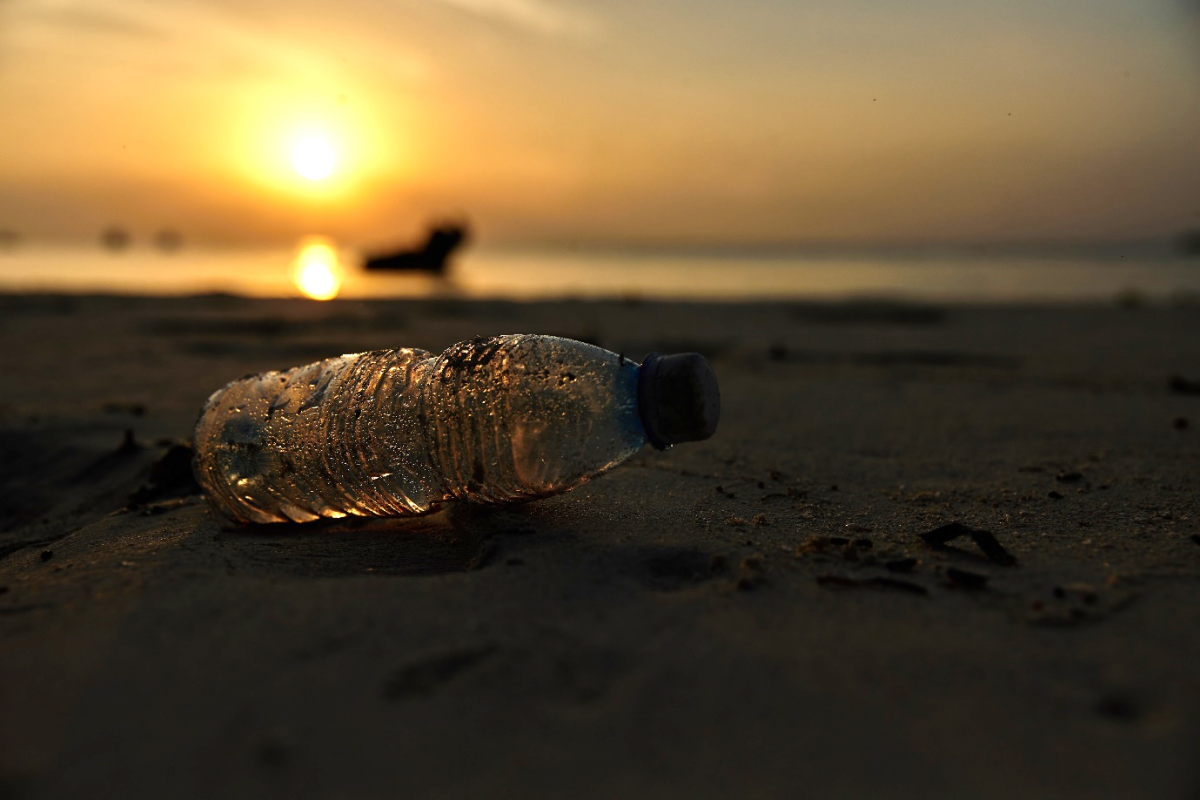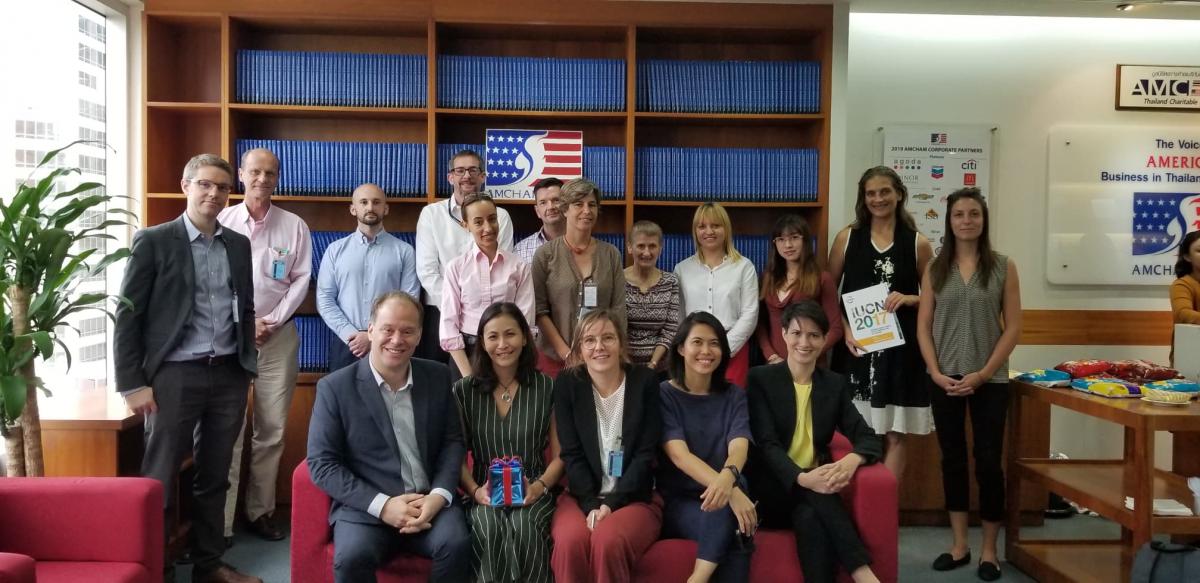Newly Published Marine Plastic Pollution and Extended Producer Responsibility Policy Studies Aid Decision Makers
IUCN MARPLASTICCs project Provides Institutional Frameworks Governing Marine Plastic Pollution to understand marine plastic pollution and Extended Producer Responsibility in Asia and Africa

Photo: White Rhino Films, Kenya
This week, the UNEA5 meetings have focused on finding solutions for sustainable development including policies to support these efforts, especially in relation to marine plastic pollution. In the process of acknowledging the seriousness of this issue, states around the globe have enacted regulations to address it by targeting the different stages of the plastic life-cycle, namely: production, trade, transport, retail, consumer use and end-of-life.
Policy Reviews
As part of the Marine Plastics and Coastal Communities (MARPLASTICCs) project at IUCN, in collaboration with the IUCN Environmental Law Centre, IUCN has published five policy scoping studies that provide policy makers with guidance on the legal, policy and institutional frameworks governing marine plastics for Kenya, Mozambique, South Africa, Thailand, and Viet Nam. Each country’s unique situation is presented in their own comprehensive report.
The reports present an overview of each country’s national background, international obligations, relevant institutions and processes, specific legal policy frameworks, and the gaps and challenges that exist when examining the issues surrounding marine plastic pollution. The support of locally-based national experts familiar with the legal frameworks in the countries was used. The reports are available in English, Portuguese (Mozambique), and Vietnamese, with the Thai version of the Thailand study coming soon. Each study provides an in-depth analysis of the regulatory tools to identify gaps and facilitate the exchange of best practices. For policy makers attending UNEA5, these reports are a useful resource: an in-depth analysis of regulatory tools to identify gaps and facilitate the exchange of best practices.
In-Depth Assessment on Extended Producer Responsibility
For Kenya, South Africa, and Thailand, there are additional in-depth assessments on Extended Producer Responsibility (EPR) available. These EPR assessments provide policy makers with a review of the existing frameworks to examine when considering marine plastic pollution. The Organization for Economic Co-operation and Development defines Extended Producer Responsibility as “an environmental policy approach in which a producer’s responsibility for a product is extended to the post-consumer stage of a product’s life cycle”.
Country Highlights
|
Kenya
|
|
|
Mozambique
|
|
|
South Africa SOUTH AFRICA POLICY ASSESSMENT
|
|
|
Thailand
|
|
|
Viet Nam VIET NAM SCOPING STUDY (Vietnamese) VIET NAM SCOPING STUDY (English)
|
|
About the IUCN Environmental Law Centre and its role within MARPLASTICCs
The Environmental Law Programme works across different scales from global to local, and across the full spectrum of sectors concerning natural resources governance. Within the ELP is the IUCN Environmental Law Centre (ELC), which focuses on analysing the regulatory frameworks governing the different stages of the plastic life-cycle in order to address this dire situation.
About MARPLASTICCS
In 2017, with generous support from the Swedish International Development Cooperation Agency (Sida), IUCN launched the Marine Plastics and Coastal Communities initiative (MARPLASTICCs), an initiative in Africa and Asia that works in five countries: Kenya, Mozambique, South Africa, Thailand, and Viet Nam. The project consists of four pillars: capacity building through circular economy projects, production of knowledge products – including the national guidance and reports on plastic pollution hotspotting, economic and regulatory policy analysis in each country, and connecting with the private sector with a business component to help businesses identify plastic leakage in their value chains.
Supported by Sida
 Photo: Sida logo
Photo: Sida logo
About Marine Litter in the UN Environmental Assembly and UNEA5
The United Nations Environment Assembly is the world’s highest-level decision-making body on the environment, with a universal membership of all 193 Member States. UNEA 5 takes place 22-26 February 2021 in Nairobi, Kenya. The ad hoc open-ended expert group on marine litter and microplastics was established at the third session of the UN Environment Assembly (UNEA) in response to UNEP/EA.3/Res.7 Marine Litter and Microplastics. At the fourth session of UNEA the mandate of the expert group was extended, pursuant to operative paragraph 7 of resolution UNEP/EA.4/Res.6 Marine plastic litter and microplastics.



